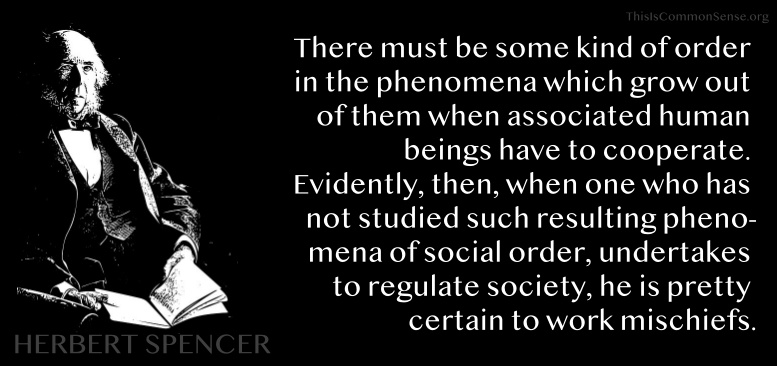[T]here lie before the legislator several open secrets, which yet are so open that they ought not to remain secrets to one who undertakes the vast and terrible responsibility of dealing with millions upon millions of human beings by measures which, if they do not conduce to their happiness, will increase their miseries and accelerate their deaths?There is first of all the undeniable truth, conspicuous and yet absolutely ignored, that there are no phenomena which a society presents but what have their origins in the phenomena of individual human life, which again have their roots in vital phenomena at large. And there is the inevitable implication that unless these vital phenomena, bodily and mental, are chaotic in their relations (a supposition excluded by the very maintenance of life) the resulting phenomena cannot be wholly chaotic: there must be some kind of order in the phenomena which grow out of them when associated human beings have to cooperate. Evidently, then, when one who has not studied such resulting phenomena of social order, undertakes to regulate society, he is pretty certain to work mischiefs.
Herbert Spencer, “The Sins of Legislators,” in The Man versus the State (1884).
Categories
Herbert Spencer
